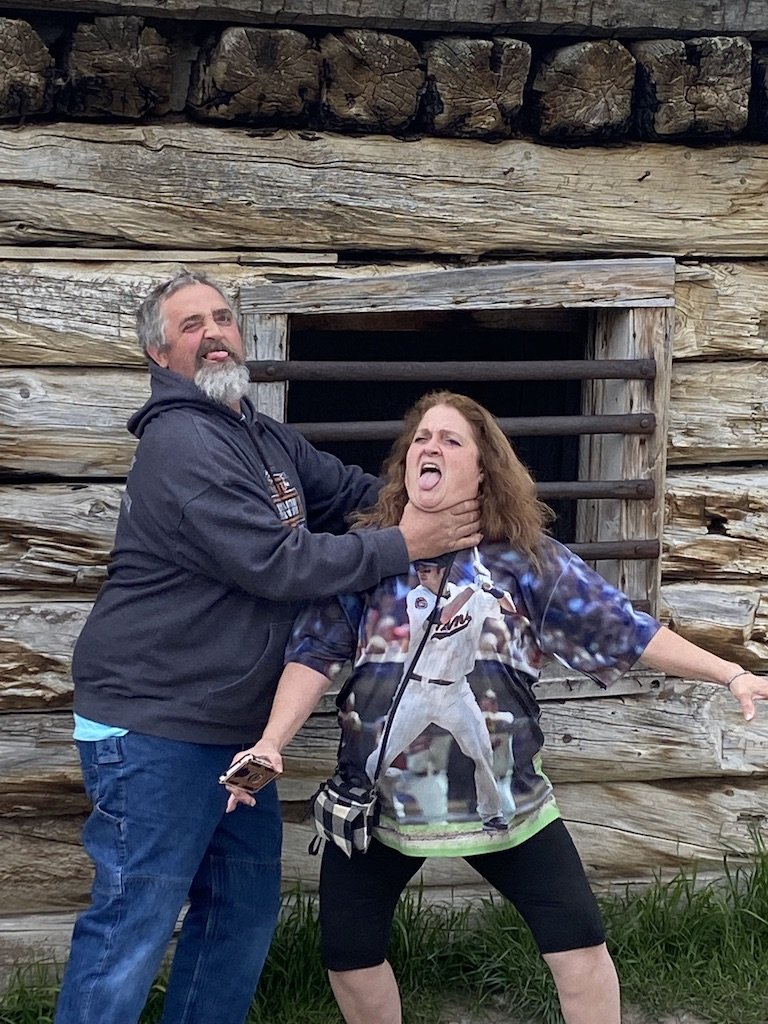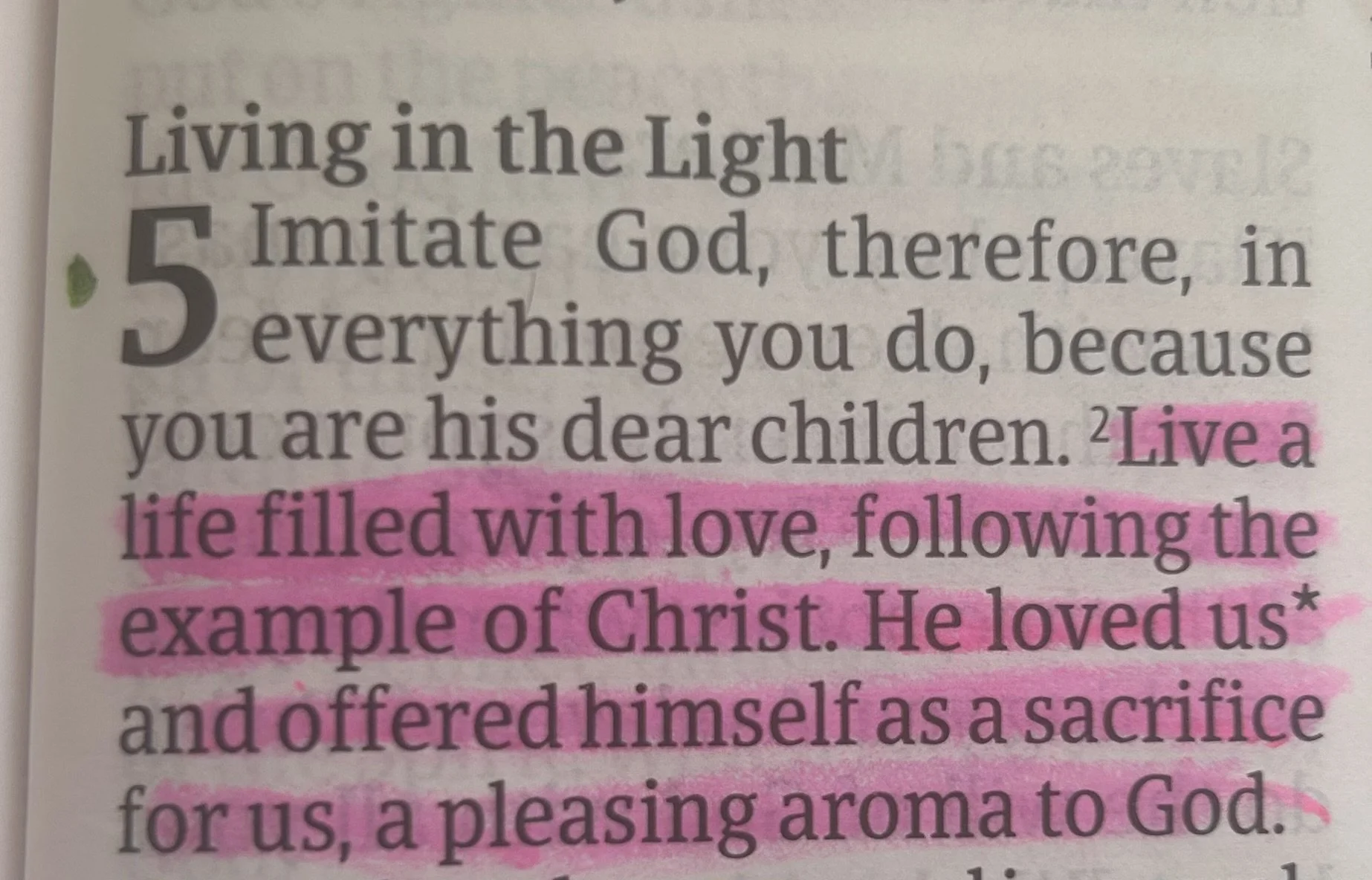A Cycle of Unforgiveness
Have you ever given or sent out a sincere apology that never produced forgiveness or restoration? It’s one of those things in life that we could choose to set down or carry. When we carry it, we think about it, look at it, and replay it. Carrying burdens for long are likely to rub a sore spot on our hearts. That soreness causes a callus of bitterness and often anger. Our desire for forgiveness from another then requires our own forgiveness for the one who hurt us by withholding. What a destructive cycle of pain this can become. This wound is a new offense we now carry.
When we carry an offense and continue to replay it in our thoughts it is very tempting to talk to others about. We may call it venting. We may believe that venting is healthy, but the more we replay offenses by talking about them. We give them more head and heart space. Instead of releasing them, we actually bind them to us. This is not good. You know how it feels when you wear a shirt that is a little too tight under the arms? It rubs. It chafes. It becomes a sore. If you wore that shirt everyday a callous would form. Anger and bitterness are the precursors to having a hard heart.
If you want relief, you need forgiveness. So then, turn to the Lord. When we sin against others or hurt them, we also sin against God. One of his great commands is to love others. When we have not loved others well, we want them to forgive us, but we also need the Lord’s forgiveness. “Where is another God like you, who pardons the guilt of the remnant, overlooking the sins of his special people? You will not stay angry with your people forever, because you delight in showing unfailing love,” (Micah 7:18).
Yes, unforgiveness is one of the great destroyers of relationships. However, when we withhold forgiveness, it also damages us. We must model God’s heart for others, or we will be an active participant in that destructive cycle I mentioned earlier.
As an example, a close friend of mine confided in me about some family dynamics she was trying to navigate. It all centered around open wounds and unforgiveness. She just wants everyone to be open and ready to move forward in restoration at the same time and in a clear way. But in my experience, most families don’t operate that way. A lot is going on in each precious heart. Each of our loved ones is on their own journey of maturity and healing. And they are doing it at their own pace. To put it simply, it’s complicated. Isn’t that ironic?
She had grown angry at someone she hoped would forgive her. She offered a sincere apology for something she had done several years ago. There was no response. My friend had already dealt with God over the pain she had caused and knew full well that she was forgiven by Him. She had been carrying this burden for a few years, and now she was bitter. I asked her, “What if your loved one came to you today and said they forgive you?” She said, “Actually, I wouldn’t care.” She wasn’t being crass; she genuinely didn’t need their forgiveness, because the Lord already forgave her. She wanted a restored relationship. God’s authority supersedes all authority, especially in pardon. “God, who gave His Son authority over all things, will be utterly supreme over everything everywhere” (1 Corinthians 15:28b). She and I were both blown away when we realized together the power in the Lord’s forgiveness.
We were having flash-bangs of wisdom as we grew in understanding of how forgiveness binds or looses the heart. Intellectually, we both know that forgiveness isn’t for the one we forgive, but for ourselves. However, until that moment, we hadn’t understood how this worked in a practical sense (especially in how it keeps that cycle of destruction spinning). My friend didn’t need forgiveness for her own well-being; she now needed to forgive the one who withheld. Not only does she need to forgive them, but she needs to put the offense down (preferably at the foot of the cross) and continue to forgive. Why? Because this is what God does!
In God’s own words: “I—yes, I alone—will blot out your sins for my own sake and will never think of them again,” (Isaiah 43:25). God forgives and forgets for His own sake, not for our sake. Obviously, we benefit from his forgiveness, because it also brings mercy and grace. But isn’t it interesting that even God forgives us because it is good for Him. Remember, Micah said “You will not stay angry…because you delight in showing unfailing love.” He doesn’t delight in anger and bitterness.
What about you? Do you delight in showing love, or do you delight in anger? I wish I could say all people do not delight in anger, but I would be wrong. This is one of those things that you need to self-evaluate. If you delight in anger and hanging on to offense, there are probably some deep wounds you need to bring to the Lord. Many of them are probably wounds from carrying the burden of unforgiveness. Your unforgiveness is hurting you, not the guy you are withholding it from. The same is true of those who don’t delight in anger, but forgiveness will come easier for them.
In essence, God is so delighted to show His unfailing love that He offered forgiveness through His own sacrifice before we could even think to ask for it. What would our lives look like if we forgave without being asked? I guess we won’t know until we do it. We are so blessed to have examples of this in scripture. Christ is a living example of how we are to live. He shows us how to forgive through His own life sacrificed on a cross, in the most horrific death, for people who didn’t even apologize for their crimes against Him.
Ephesians 5:1-2 from the New Living Translation
“Since you have heard about Jesus and have learned the truth that comes from him, throw off your old sinful nature and your former way of life, which is corrupted by lust and deception. Instead, let the spirit renew your thoughts and attitudes. Put on your new nature, created to be like God—truly righteous and holy…And ‘don’t sin by letting anger control you.’ Don’t let the sun go down while you are still angry, for anger gives a foothold to the devil…Get rid of all bitterness, rage, anger, harsh words, and slander, as well as all types of evil behavior. Instead, be kind to each other, tenderhearted, forgiving one another, just as God through Christ has forgiven you,” (Ephesians 4:21-31).
Given these points, forgiveness does not condone bad behavior, nor does it imply that boundaries dissolve. We were created in the image of God. Image bearers do not allow abuse to their person or others. You can forgive someone without allowing them to continue hurting you. Relationships are complicated but don’t let the enemy’s voice twist forgiveness into acceptance of abuse. As my friend learned, everyone is on their own journey of emotional maturity and healing. There may be some people that you must release to journey alone for a while, maybe forever. You: forgive, dust yourself off and live like Christ.

